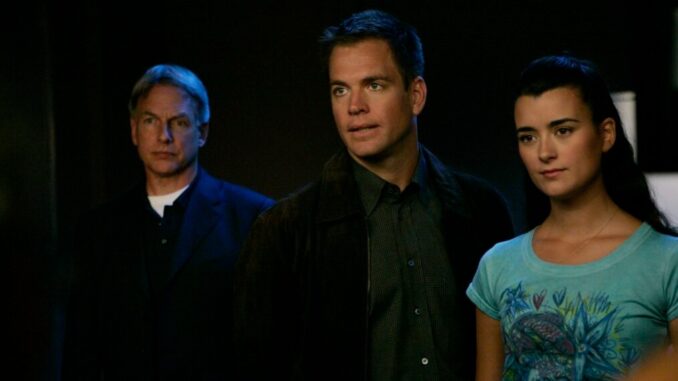
Welcome to the Q&A with TV critic — also known to some TV fans as their “TV therapist” — Matt Roush, who’ll try to address whatever you love, loathe, are confused or frustrated or thrilled by in today’s vast TV landscape. (We know background music is too loud, it’s the most frequent complaint, but there’s always closed-captioning. Check out this story for more tips.)
One caution: This is a spoiler-free zone, so we won’t be addressing upcoming storylines here unless it’s already common knowledge. Please send your questions and comments to askmatt@tvinsider.com. Look for Ask Matt columns on most Tuesdays.
The White Lotus Finale Kept True to Itself
Comment: [SPOILER ALERT] I have no idea whether your readers liked or disliked the finale of The White Lotus, but for me, though the identity of the fallen was a surprise, I think it was the best solution. As things developed in the finale, I was prepared for young Lochlan to die, but was glad he didn’t. He’s the only member of that family who is a total innocent. (I loved it when he described himself as a “pleaser” in a family of narcissists.) Mike White again returned to the theme that the wealthy always eventually return to their “tribe,” which is how I think it was put in Season 1. Piper Ratliff’s realization that she needed better food and air-conditioning after all is reminiscent of Olivia Mossbacher in Season 1, who, after spouting all sorts of progressive slogans, realized that her place was with her wealthy family. And this theme was accented by Belinda, who, as soon as she became wealthy, did exactly the same thing to Pornchai as Tanya McQuoid did to her in Season 1. — D.P.
Matt Roush: [More spoilers] I largely agree with this assessment. The White Lotus, from the start, has worked best as a scathing yet empathetic commentary on the privileged class, who often show their worst selves in exotic settings like these, wrapped in a “who’s going to die” mystery. Once they established the poisoned blender in the Ratliff suite as their version of Chekhov’s gun, I was on edge and kept willing Lochlan not to drink. (The scene with the tainted pina coladas was also harrowing.) In a classic tragedy, the kid would have paid the ultimate price for his fallen father’s hubris, but Mike White saved the jaw-dropping tragic twists for Rick (“He’s your father!”) and Chelsea. And what a bitter irony for the newly wealthy Belinda to abandon her sympathetic lover-friend the way Tanya did to her. This wasn’t my favorite season, but I have few issues with how it ended, and I look forward to the next trip.
The ABC’s of Weak Programming
Question: What is up with the anemic, CW-like ABC schedule the past few seasons? Hardly any scripted dramas or comedies! All game shows and news/documentary type shows! There are even reruns of game shows in season (Celebrity Jeopardy!). Disney should spend more, and maybe they would get more eyeballs to view better shows! I know the networks aren’t what they used to be, but their schedule is ridiculous! They should be ashamed of themselves! Also: Why can’t they at least show reruns of good streaming shows after their runs? Any chance there could be a new buyer for ABC? — Evan J.
Matt Roush: Disney isn’t ditching ABC, and to address the streaming question, they’ve already been repurposing Hulu shows on the network for a while: the first seasons of Only Murders in the Building, and as of this Monday, Paradise, as well as true-crime docuseries that previously aired on Hulu. All of which points to the larger issue that the network is obviously no longer the parent company’s priority, with gaping holes on the schedule including no midseason drama to replace High Potential and room for only two sitcoms for the entire week. Fox is in even worse shape after being separated from its studio, with only two nights of scripted programming on the current schedule: two dramas on Tuesday and Sunday’s animated lineup. The ABC situation (which also applies to a lesser degree to its rivals) happens when companies put more emphasis on developing high-end projects for their streamers and filling the network lineup with a hodgepodge of reality and game shows, formulaic crime drama franchises, and a very occasional sitcom to brighten the mood. Remember “must-see TV?” Those were the days.
Taking Issue with Origins
Question: I thought NCIS: Origins was supposed to be about Gibbs and how he got started at NCIS. Just about every episode is about Franks and all of his problems. Why the focus on Franks? — Ken
Matt Roush: We discussed this issue in a recent column from the perspective of someone who found Franks (Kyle Schmid) more interesting than the young Gibbs (Austin Stowell), and I conceded that Franks, at this stage in their relationship, is a more colorful and compelling character. My take on Origins as it’s developed through the first season, when there’s typically a learning curve, is that while Gibbs provides the window from which we see the NCIS team, he’s often taking the role of observer, telling the stories and learning from the experiences of those around him, including in a recent episode the den-mother character of support officer Mary Jo (Tyla Abercrumbie). This may not be the show some NCIS fans expected, but I’m intrigued by its more contemplative tone and that it isn’t just a 1990s version of NCIS.

Comment: I’m generally a pretty positive person, but I’m having serious issues with NCIS: Origins. I’m watching the 15th episode right now and am still underwhelmed. So dark … in acting, in the cases of the week, and even the dark, moody lighting is getting tiresome. I’ve watched every episode of every NCIS iteration — yes, even Sydney — but I’m afraid I’m going to have to quit this one. Has this been brought up before? — Joan D.
Matt Roush: Maybe not so definitively, but I get it. The tone of Origins is definitely more somber than the norm, and while I as a critic might champion the show for its attempt to set itself apart from the rest of the somewhat interchangeable franchise, I’ll also acknowledge that CBS shows in particular risk alienating their core audience whenever they stray too far from the successful formula.
What’s With all the Callbacks to NCIS: LA?
Question: Does it feel like NCIS: Los Angeles is making some kind of impromptu comeback this spring? With Sam (LL Cool J) coming to the main NCIS on April 21, and with the recent news of NCIS: Origins bringing in a young Lara Macy in its Season 1 finale, it feels like this is the start of some kind of comeback to the longest-running spinoff in the NCIS-verse. – Maria
Matt Roush: Not sure comeback is the right word as much as homage. It only makes sense for the NCIS franchise to continue providing callbacks to its offshoots, even those no longer airing. They’re all part of the same fictional universe, and Sam’s going to be welcome wherever he appears. It seems especially appropriate for Origins to give us early glimpses of characters who will play a part in stories in the future.
That Chicago Crossover Was on Fire!
Question: I know I am late to the party, but I just finished watching the three-way Chicago crossover, which I consider a major three-hour movie. If this series doesn’t earn major awards, there is no justice in awards. — Carole, Minden, Nevada
Matt Roush: It was smart of NBC to repeat the mega-crossover in a season. That said, expecting the Emmy voters to reward a network procedural in anything beyond technical categories is probably a pipe dream anymore.
And Finally …
Question: Why are the creators of Matlock — which I love — so obsessed with the color blue? Every episode is saturated in shades of blue. Matty and the rest of the cast are often dressed in shades of blue. The offices are decked out in matching shades of blue. I love the show, but I’m often distracted by the abundance of blue and am curious if and why it’s a conscious choice, because it’s so prevalent. — Daryl
Matt Roush: I haven’t seen the producers address this aesthetic matter, but there are many theories online about why the color of teal blue is so often preferred by those establishing the look of a show or movie. (It had never jumped out at me while watching Matlock, but after reading this, I couldn’t help but notice when I screened this week’s game-changing and can’t-miss episode.) Apparently, because the human eye is more sensitive to blue light, teal hues create a sense of depth and three-dimensionality, help make skin tones appear more vibrant, and evoke a “golden hour” effect that enhances the comfort level we feel with shows like these. All I’ll say about this week’s Matlock episode is that I came away feeling anything but blue.
That’s all for now. We can’t do this without your participation, so please keep sending questions and comments about TV to askmatt@tvinsider.com. (Please include a first name with your question.)